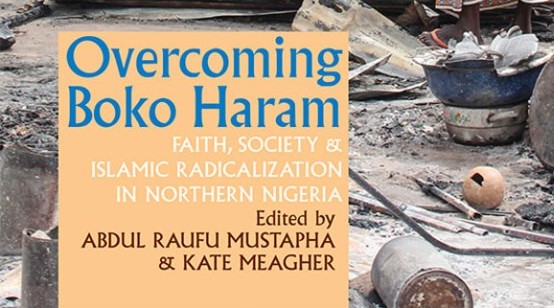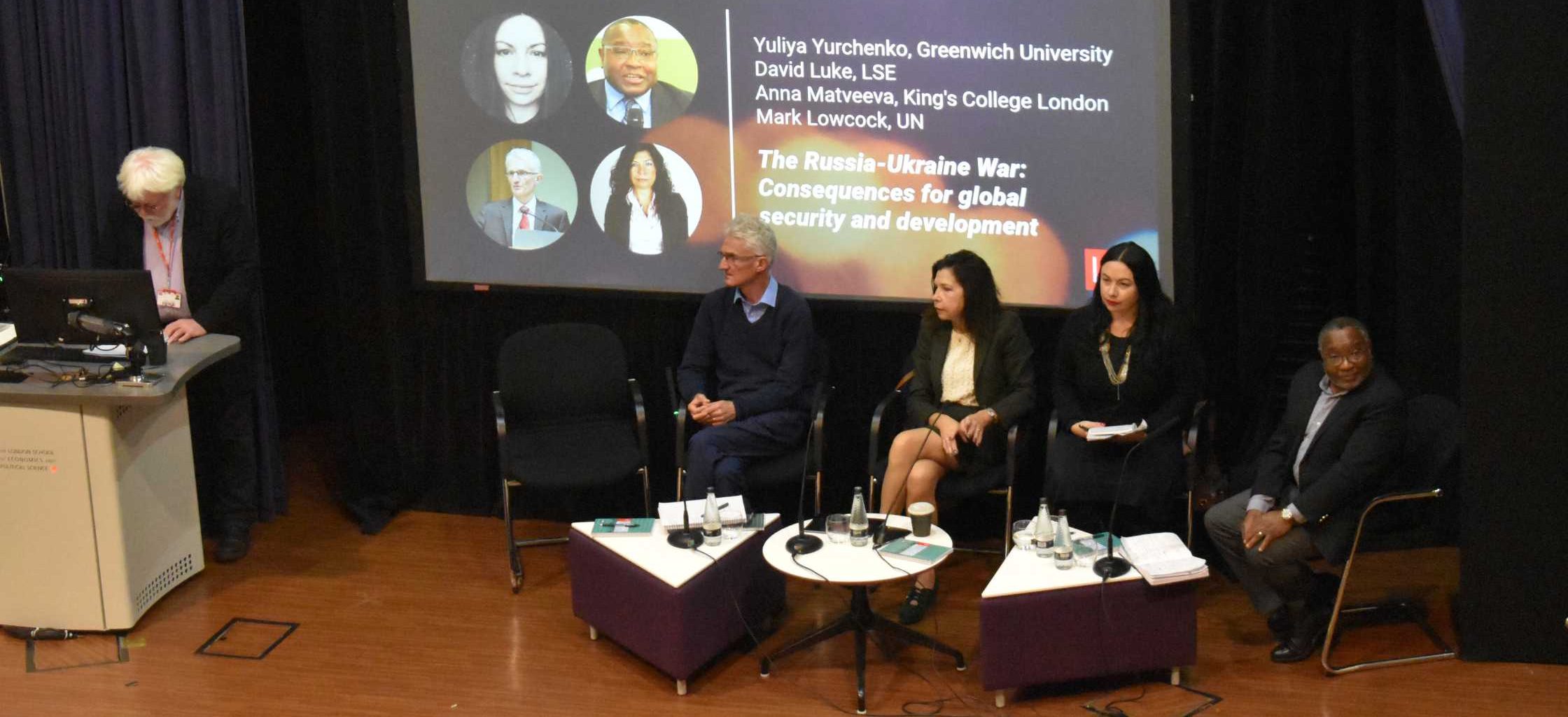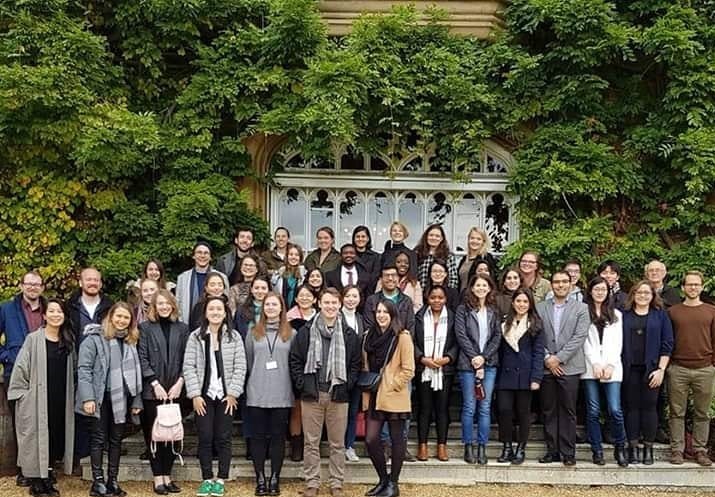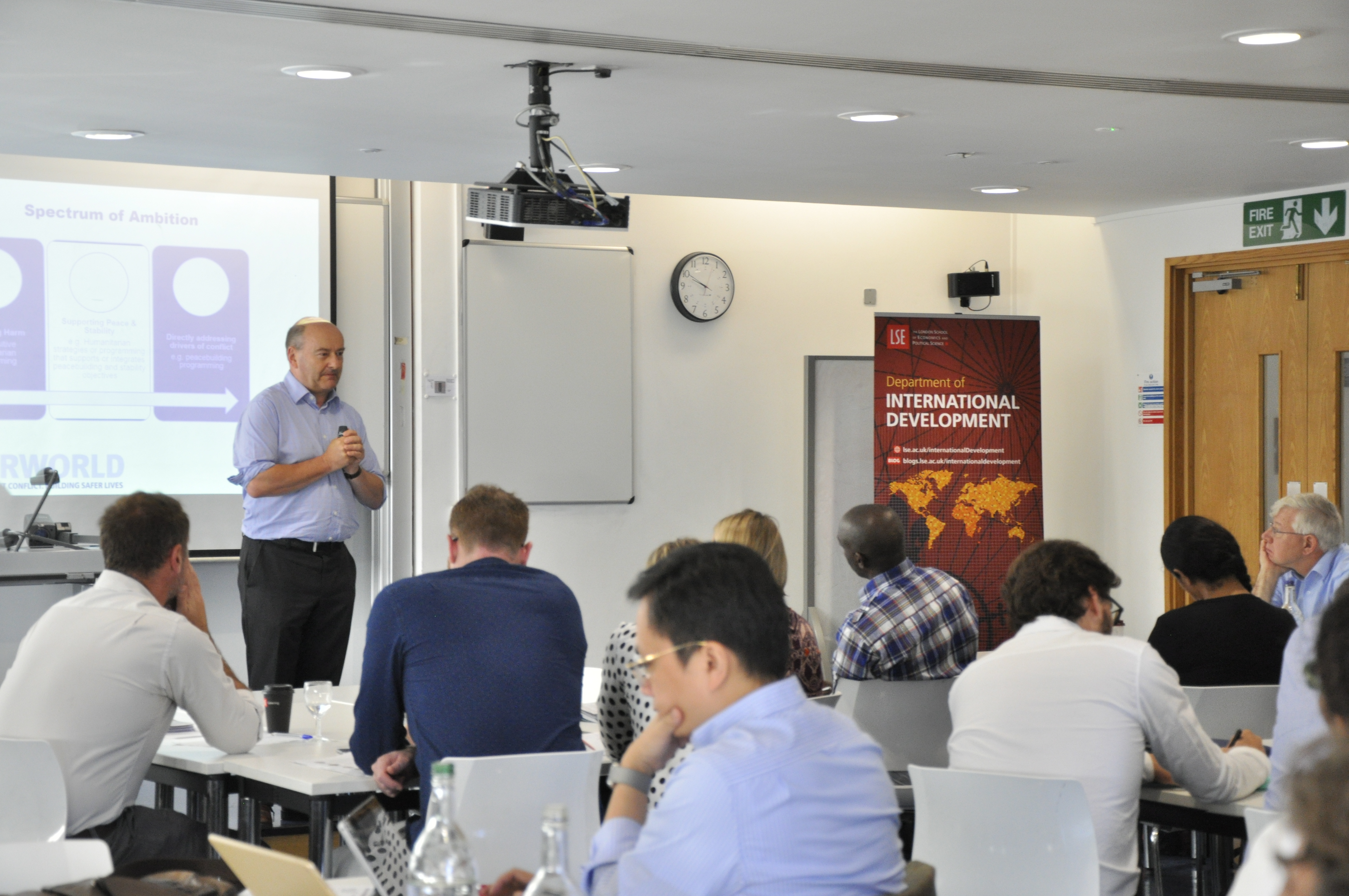On Friday, 23 November, Prof Duncan Green of the LSE’s International Development Department and Oxfam discussed his book, How Change Happens, as part of the Department’s Cutting Edge Issues in Development lecture series. Read about his lecture in this blog post, written by two of the Department’s students.
With a decades-long career as an academic and practitioner in the field of international development (ID), Duncan Green is no stranger to change. As perennial fads make their way through what he calls the “hype curve” (the process of an ID practice coming in and out of vogue), some such development initiatives enact real change in target communities, while others don’t seem to make a difference. This begs the question, “How does change happen?”.
Green’s 2016 book aptly titled, How Change Happens, answers just that. On 23 November, attendees of his book talk at the LSE had the opportunity to learn key insights about activism and change from the author himself. During his talk, Green explained the importance of balancing the fact that we live in a highly complex, interconnected world with the need to integrate well-defined systems thinking into our theories of change. He referred to this process of strategically navigating a seemingly unknowable world, “dancing with the system”.

Cue the music…
One of the “dances” that Green shared was the power analysis. This scatter diagram tool can be charted on either a local or a global scale, with the x axis representing the degree to which an actor cares about an issue, and the y axis representing the degree to which an actor has the power to influence the issue. Green shared that he once conducted this exercise with a community in Tajikistan to better understand the power dynamics surrounding the water, sanitation, and hygiene (WASH) systems in the town. Through the analysis, community members explained that trash collectors held a certain level of power as they often gathered the most up-to-date information from surrounding towns on their collection routes. Because of the nature of their jobs, they were also interested in the WASH status of the community. At the same time, the mayor’s mistress also enjoyed a certain degree of authority but did not necessarily have a personal stake in the issue. Green and his team used the community’s feedback to help consolidate alliances and improve the community’s WASH systems.
The strength of any power analysis is that it reduces assumptions because it takes a community-driven approach. What outsider would have guessed that trash collectors were considered key information-holders of the town, or that community members commonly raised important concerns to the mayor’s mistress? The tool’s ultimate goal is to equip activists to move as many actors as possible to the “northwest” corner of the grid. That is, to form linkages between actors with power and actors who care about the issue in order to enact lasting change.
If you want to learn more dance moves, Green’s book can be downloaded for free here. He also regularly maintains an Oxfam blog, From Poverty to Power, which can be found here.
Krista Kartson is an MSc Development Management candidate at the LSE and holds a BA in International Studies from American University in Washington, DC. Krista has eight years of professional experience in international relief & development, and most recently designed programmes for displaced persons and returnees in Iraq. Her research interests include land tenure policy and post-conflict stabilisation in the Middle East.
_______________
“The answers are there, let’s help people find them”. That’s probably the most remarkable part of the lecture for me, when Duncan Green was explaining how Save the Children managed to halve malnutrition rates in a village in Vietnam in a period of 6 months, just by observing and identifying what families did differently in those households with less malnourished children. There, they served the food from the bottom of the cooking pots where the solids were as opposed to what is habitually done in the community, which is serving from the top, where just the liquid part is taken. They also used to include crab and other types of protein so kids would eat more nutritious food. There was no need for interventions or costly projects, but just looking for solutions from how the system was functioning.
In his book How Change Happens, Duncan Green speaks to those trying to bring change to their systems. He recognizes how things have improved massively and how activists and protesters are getting smarter; however, he sees with frustration how they have taken steps that made them fail. The latter because activism has a “cake problem”. According to Green, the analogy works like this: to make a cake, you need ingredients, a recipe and an oven. If you have all of those, you can predictably produce a cake. Therefore, you have a prediction and a result. Similarly, in activism, you have a project, where you set out in advance what you want to do (recipe) and you also have a set of tools (ingredients) to work towards a predicted result (the change).
He argues that having such an incredibly linear way of thinking about change does not work since the actual world looks like something very different and messy, a very complex system with different connections which make it extremely difficult to predict what will happen. In this sense, he proposes a power and systems approach that suggests some characteristics for activists to be effective as well as a set of questions they should ask (and keep asking) regarding the system and the course of action to change.
Concerning the way of thinking and working, change agents must be curious about the society, context, culture and history of where they want to effect change. Besides, they must be humble enough to embrace uncertainty and ambiguity. Not only do they need to feel comfortable with unpredictability but also understand that there are different explanations of how things are. Reflexivity is also necessary for them to become conscious of their own role, prejudices and power as well as to include multiple perspectives and be open to different ways of seeing the world.
Likewise, activists should ask themselves what kind of change they are looking at in terms of policies, practices or norms to be promoted, created or modified; what precedents or changes already happening can they learn from?; what kinds of power are at work?; and finally, how will they know if their actions are actually having a real impact on the context they are working on?
Carolina Largo is an MSc Development Management student at the LSE, a Management graduate of Audencia Nantes School of Management and of Externado University where she studied Finance and International Relations. Carolina’s interests include the social and economic inequalities, as well as the nexus between development and conflict.
Next up in the lecture series: Saleemul Huq of the International Centre for Climate Change & Development (ICCCAD) and the International Institute for Environment & Development (IIED) will be speaking on “The Evolution of the Science: Policy and Practice of Adaptation to Climate Change”. The lecture will be held on Friday, 30 November, from 4 to 6pm in the Sheikh Zayed Theatre in the New Academic Building at the LSE. External guests should contact S.M.Neuenschwander@lse.ac.uk to reserve a seat.
The views expressed in this post are those of the author and in no way reflect those of the International Development LSE blog or the London School of Economics and Political Science.





